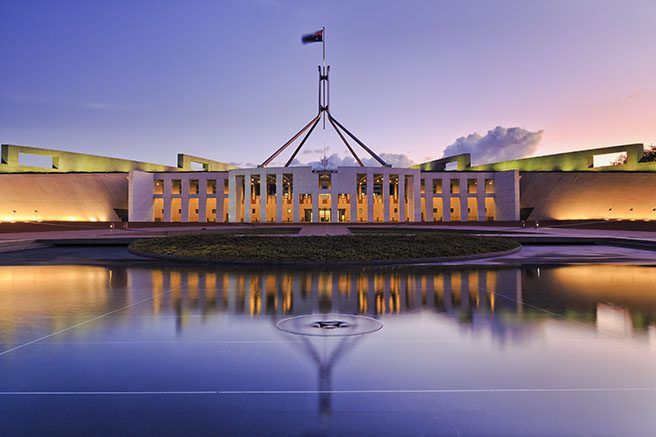The 2021-22 Federal Budget has a focus on fiscal stimulus measures rather than austerity. In particular the Budget targets job growth, rebuilding the economy and addressing key social issues. According to the Treasurer, an additional 200,000 people in work equates to almost $3 billion less being paid in income support and $2 billion more being generated in additional income tax receipts.
Packages and subsidies aimed at creating jobs
Infrastructure
An additional $15.2 billion will be spent on major infrastructure projects over the next decade, across all States and Territories. It is projected that this infrastructure spending will support in excess of 30,000 jobs.
The Government has also announced the Building Better Regions Fund will be provided a sixth round of funding, being another $250 million.
The childcare subsidy will be increased from the current level of 85% to a maximum of 95% for the second and subsequent children in care. This measure will have a cost of $1.7 billion over three years. 250,000 families will be better off by an average of $2,200 per annum.
Childcare subsidies are currently capped at $10,560 (per child) if the family earns over $189,390. This cap will be removed entirely.
Both measures will apply from July 2022.
Skills training
The Government will provide $2 billion in 2021-22 to support State skills and workforce development services, including $1.6 billion through the National Skills and Workforce Development SPP, $339.1 million towards the expanded JobTrainer Fund, and $104.9 million through other National Partnership payments.
Education
The Government will provide an additional 5,000 Commonwealth supported short course places at non-university higher education providers in 2021.
Measures designed to make housing more affordable and reduce homelessness
Family Home Guarantee for single parents
From 1 July 2021, 10,000 guarantees will be made available over four years to eligible single parents with dependants to build a new home or purchase an existing home with a deposit of as little as 2%, with the Government guaranteeing another 18% of the value of the loan subject to certain conditions.
New Home Guarantee
The Government will be adding another 10,000 places for singles and couples to the New Home Guarantee.
The scheme allows first home buyers to build a new home or buy a freshly built home with a 5% deposit, with the government guaranteeing up to 15% of the loan.
First Home Super Saver Scheme (FHSSS)
The amount that a first home buyer can withdrawal from their superannuation funds under the FHSSS will increase from $30,000 to $50,000 from 1 July 2022 provided certain conditions are met.
Homelessness
$124.7 million will be diverted to social and community housing over two years to help States and Territories combat homelessness.
Health care
Measures targeting availability, accessibility and improvement of health services
Aged care funding
In an effort to combat shortcomings identified in the Royal Commission into Aged Care, the Government has allocated $10 billion of funding over the next four years.
The funding package will help address five key areas: increasing availability of home care packages by 80,000, improving residential aged care quality and safety standards, improving residential aged care services and sustainability, targeting the skills and staffing shortages, and increasing governance.
COVID-19
The Government is providing $1.5 billion in this Budget to extend a range of health responses, to keep Australians protected alongside the roll-out of COVID-19 vaccines. This includes continued funding for telehealth services, which has seen over 56 million services delivered to 13.7 million patients since March 2020, COVID-19 testing and support to prevent outbreaks in remote communities.
The Government is investing a further $1.9 billion in the COVID-19 vaccination roll-out.
Women
The Government has already announced a $354 million women’s health package, which includes funding for cervical and breast cancer screening programs, and more support for mental health and wellbeing of new and expectant parents as well as funding for eating disorder programs and genetic screening of embryos.
The Budget also includes $1.1 billion in funding for domestic violence prevention and support of domestic violence victims.
These measures are part of the Government’s record funding for health, with total spending to increase from $98.3 billion in 2021-22 to $103.2 billion in 2024-25.
Mental health
In response to the Productivity Commission’s inquiry into the mental health sector, the Government is spending an extra $2.3 billion towards mental health services focused on funding treatment centres and suicide prevention spent over the next four years.
$1.2 billion will be spent under the Government’s digital economy strategy
Small businesses are being supported to adopt digital technologies through a $12.7 million expansion of the Digital Solutions – Australian Small Business Advisory Services. A further $15.3 million will be used to drive business uptake of e-invoicing, which can deliver up to $28.2 billion in net benefits over 10 years.
The Government is investing over $100 million in initiatives to build the digital skills of Australians to meet the needs of the modern Australian workplace. The recipients of these funds will be a combination of employers and educational providers.
Australia’s research and industry capability in Artificial Intelligence will be boosted with $124.1 million in new funding, including a National Artificial Intelligence Centre led by CSIRO Data 61.
The Government will spend $200 million on the myGov online portal to access government services and $302 million into My Health digital records.
The Government is committing $111.3 million to the Consumer Data Right, accelerating the rollout and giving consumers faster access to better deals and savings unlocked by their data.
Aviation, tourism, the arts and international education providers
$2.1 billion will be allocated to support these sectors in the short term. This includes the subsidising of 800,000 half-price airfares.
Climate and energy
$1.2 billion will be allocated to low emissions technology innovation and a further $317 million will be allocated to assist businesses and industry lower their emissions by encouraging voluntary action on emissions and reducing energy use.
The Government will provide $1.2 billion over five years to improve Australia’s resilience in relation to natural disasters.
Indigenous Australians
The Government will provide $243.6 million over five years from 2020-21 to improve economic, social and education outcomes for Indigenous Australians.
Agriculture
The Government is helping the agriculture industry achieve its goal of increasing farm gate output to $100 billion by 2030 by providing funding to build water infrastructure, improve soils, preparing for future droughts and increasing exports.
The Government has also announced a $414.5 million biosecurity package to protect the agricultural sector from pests and weeds.
Defence
The government has also revealed $747 million in upgrades to military bases used for wargame exercises in the Northern Territory.










